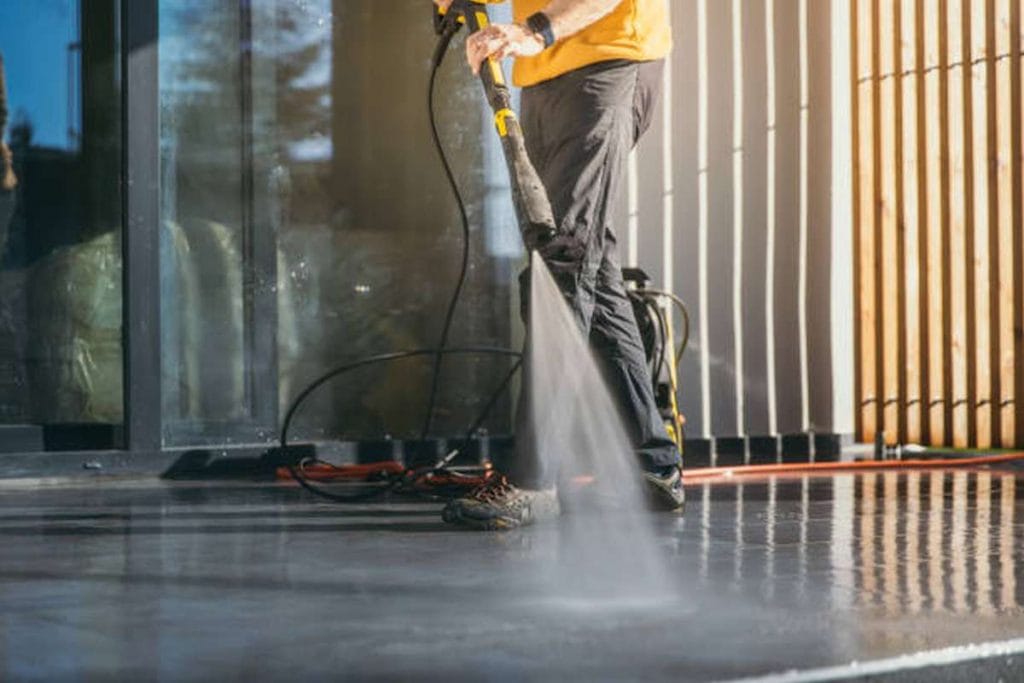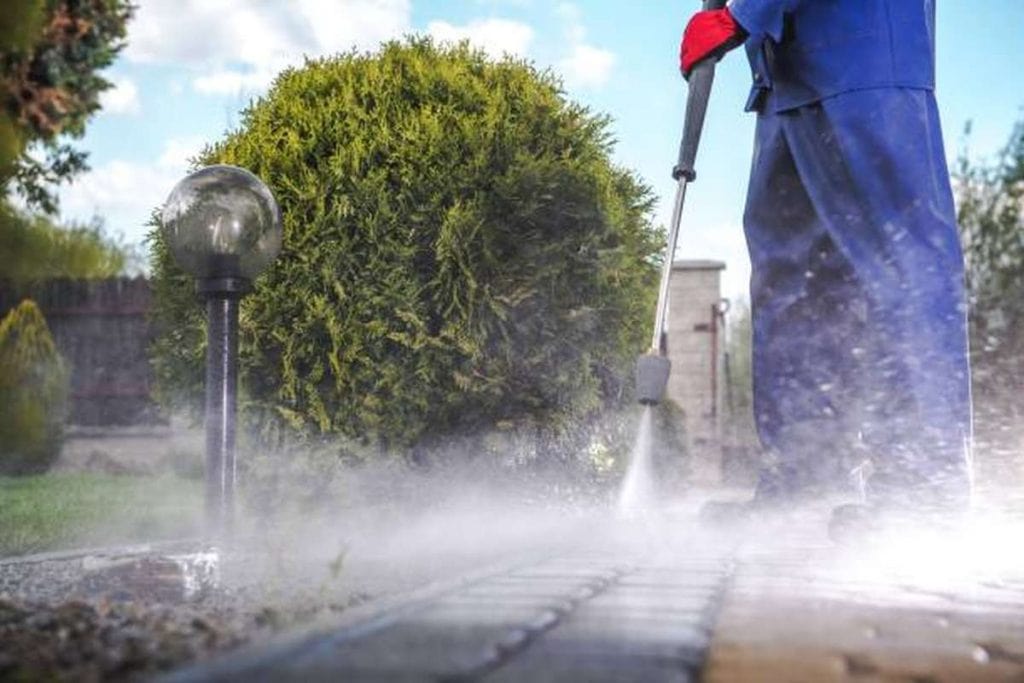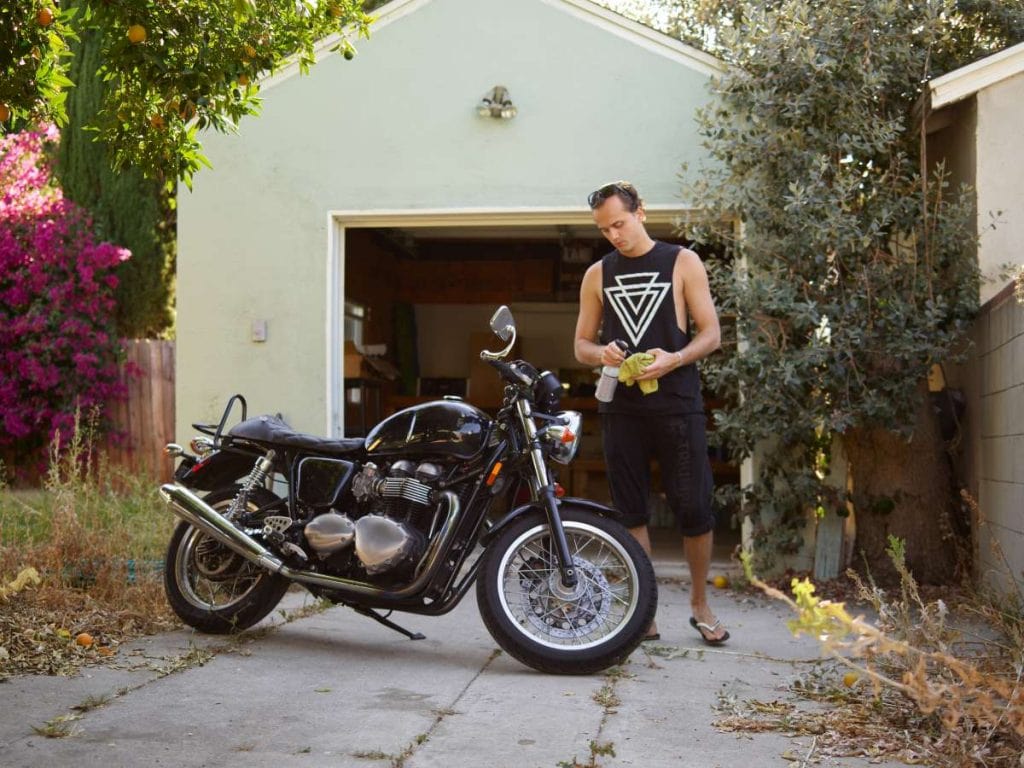Having a clean driveway is essential for maintaining the curb appeal of your home. Not only does it look better, keeping your entranceway free from dirt and debris also prevents cracks caused by the buildup of materials that can be potentially hazardous to children or pets who may pass through the area.
If you're looking for ways to keep your driveway clean, then this blog post is for you! Read on to find out some tips and tricks on how to get it looking just like new again.
The Benefits Of A Clean Driveway Will Convince You It Is Time Well Spent
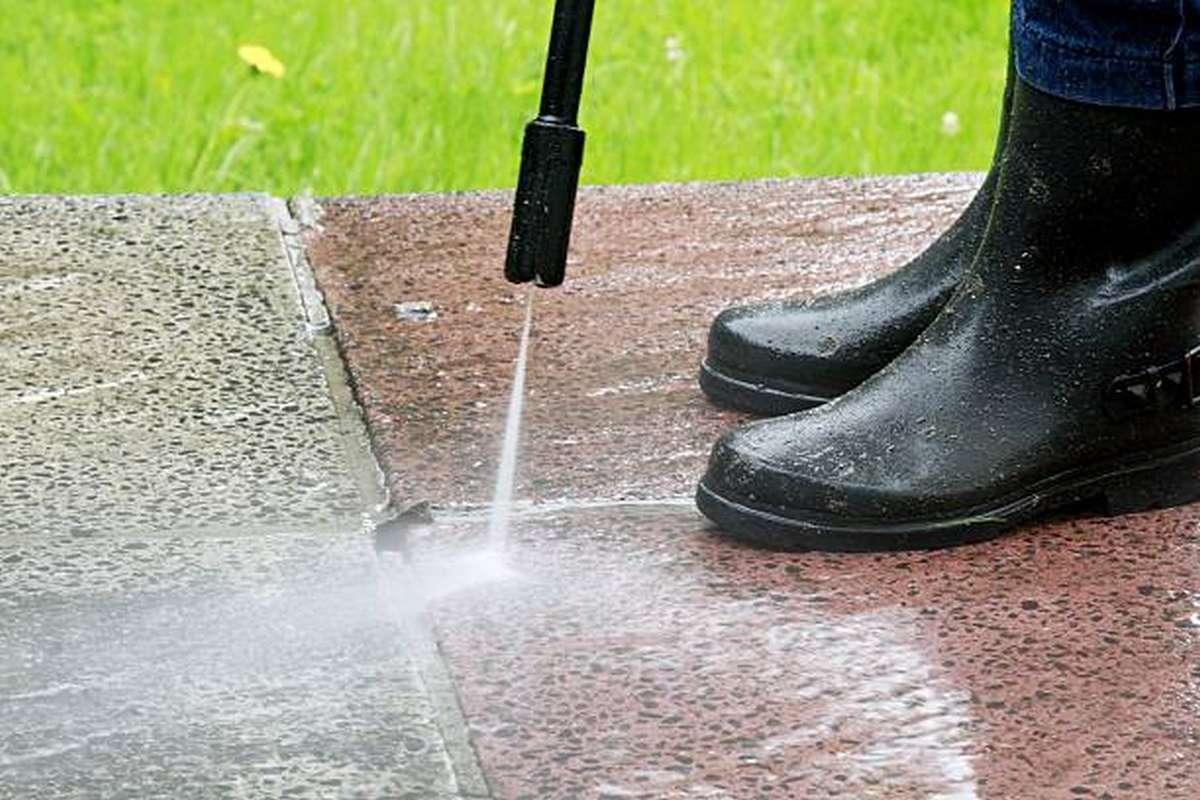
- Routine driveway maintenance and cleaning are among the most effective and sometimes overlooked methods to increase our homes' kerb appeal. Cleaning will remove dirt, trash, stains, grime, and mildew, bringing back your home's original beauty.
- Enhance driveway longevity by preventing the accumulation of dirt in the spaces between the blocks or pavement cracks, which can lead to the growth of weeds and subsequent damage to the driveways in the form of new or widened cracks. When you clean the driveway, you get rid of the dirt and any unwanted plants, which can prevent you from spending money on repairs or replacements. Oil, as well as other spills, include compounds that can react with the surface, causing extensive damage.
- Help make the building a safer place for the people living there - Growing algae and mould, as well as a few spills, can make the surface on your driveway slick and dangerous for you and your family. Immediate removal by the surface being cleaned will increase household security.
- Boost your home's resale value by improving its initial impression on visitors: the driveway. Therefore, keeping it spotless is a fantastic approach to wow them and boost the likelihood of getting a higher offer while selling your home.
The Driveways Need To Be Cleaned Before You Can
Having the correct equipment and knowledge may make driveway cleaning easy and quick. The first step in cleaning your driveway without damaging the surface is to determine the sort of material it is made of. You can get help from experts if you need to learn about this.
The second step is to gather all the equipment and supplies you'll need to clean your driveway. You may need to employ a professional driveway cleaning company or rent some of the necessary equipment.
Simple Methods To Clean Your Driveway
Maintaining a clean and inviting home is a year-round project, but you can do just that with the following do-it-yourself driveway cleaning ideas.
When Should I Clean My Driveway To Get The Best Results?
Removing stains and dirt from the driveway as soon as possible is highly recommended. Unfortunately, most homeowners only power and pressure wash their driveways in the summer or spring, when algae and moss are much more obvious. Also, it's best to wash on an overcast day, as fast drying reduces the efficiency of the cleaning process. Depending on the room size, it should take either an afternoon or one to two hours to complete.
Put All Resources Aside
You need the proper equipment to clean your driveway properly. Any stain on the concrete surface may be removed with the correct tools, no matter how widespread it is. This is the ideal equipment for the job:
- Nozzled sprayer
- Scrub brush
- Outdoor broom with a lot of bristles
- Detergent (liquid soap)
Investing in tools that do chores like sweeping the driveway easier should be a top priority.
Identify The Driveway Style You Want
Although most driveways look the same at first glance, over 15 different kinds are available. While there is no such thing as "one grease remover for everyone," knowing the material of your driveway will help you narrow down your alternatives.
With an asphalt driveway, oil, grease, and slimy dirt have a harder time penetrating the surface. So you need a biodegradable household cleanser. Then, after letting it sit for a few minutes, you can rinse the area of water from the hose.
Parking on a concrete driveway is trickier since the material is slightly porous, allowing contaminants like oil to seep. Quick action and the use of appropriate absorbents are required in this situation. It would help if you gave your absorbents sufficient time to soak up the oil.
A word of advice: larger spills require more powerful absorbents than smaller ones.
To finish cleaning up the spill, you can use solvents once you've soaked up as much as you can. For best results, let the solvent sit on the surface for at least thirty minutes after application to break the oil down.
Rinse the area with water from the pressure pipe, careful not to leave any markings. If the stains are still there after multiple attempts, you may need to use a stronger detergent.
Eliminate The Oil Stains First.
Inevitably, the grease stains around your driveways will be the last to go.
Grease poses a hazard to the health of any living things (including outdoor plants) in the front yard, which includes the driveway. Cleaning up grease stains from a driveway requires prompt action to prevent further staining.
Cleaning The Driveway Of Absorbent And Debris
Scoop up the sawdust and kitty litter and use it to sweep the entire driveway clean of dry leaves, soil, mud, and other debris that has settled to the ground.
To ensure that all of the dirt and debris have been cleaned from the block gaps and cracks, use a sturdy, stiff-bristled broom designed for outdoor use.
Soak The Stain In The Detergent And Scrub It Away.
Powdered dishwashing detergent or a mix of sodium percarbonate and hot water can be applied directly to the discolouration.
- The suggested solution ratio is two cups of a detergent to three-quarters of a bucket's worth of hot water. Asphalt driveways require special care. Therefore it's best to stick to cleaners advised by experts.
- After half an hour, use the deck brush and detergent to scrub the stained areas.
- Lastly, spray the driveway down with clean water using a high-pressure hose.
Find A Good Cleaning Service.
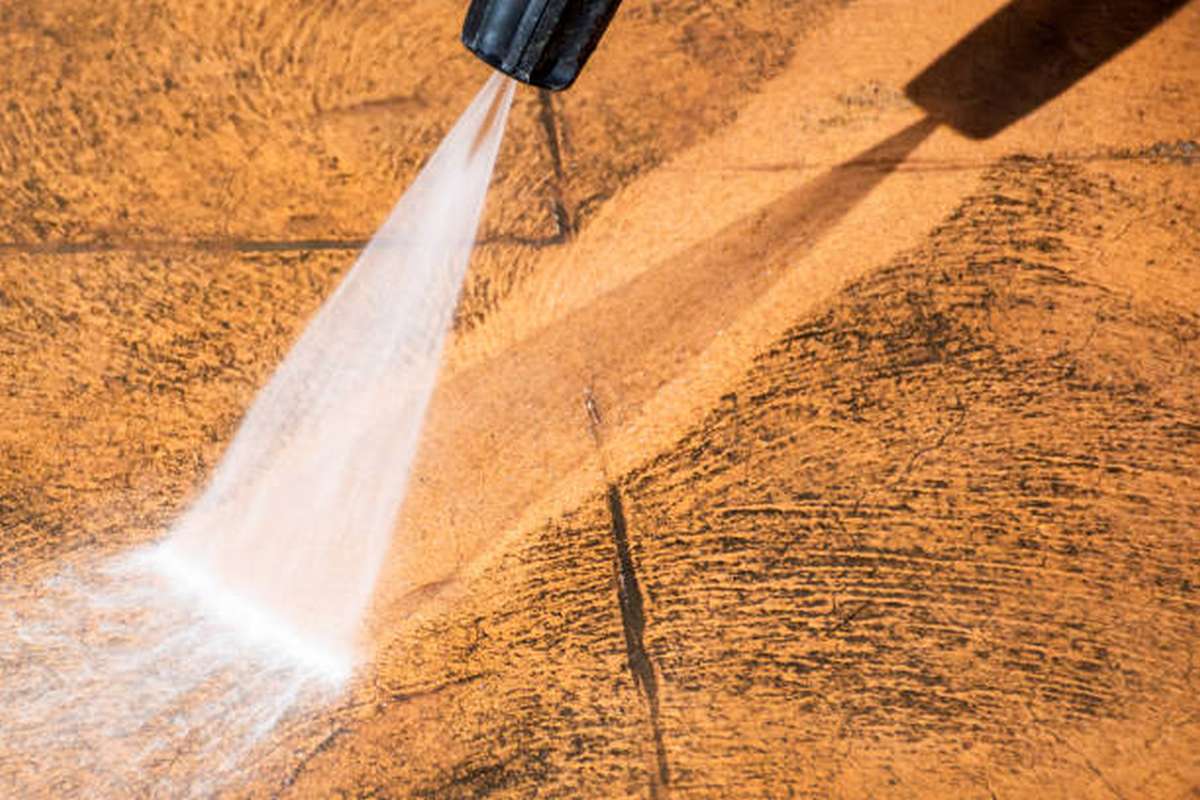
The driveway material's identity will guide you towards the best cleaning solution. Dish soap or even an absorbent such as kitty litter are good places to start when attempting a do-it-yourself solution for a concrete driveway.
It would help if you used baking soda and bleach to get the greatest results on the asphalt driveway. Choose gentle cleansers on your driveway surface while effectively removing stubborn stains.
Remember that persistent stains may require multiple applications before they can be removed completely.
Pressure-Wash
Choose the "25 degrees" setting on the spray wand. Continue spraying back and forth by pressing down on the handle. After the driveway has been pressure washed, it should be sealed with a watertight sealant. Sealing a driveway will prevent future cracks and potholes in the pavement.
Caring For Your Driveway In A Neat Manner
No matter where you live or how you use your driveway, regular cleaning and upkeep are essential if you want the area to retain its pristine appearance. Some suggestions for perpetually spotless driveway maintenance:
- Maintain a regular schedule of sweeping the driveway at least twice a month, if not more often if necessary. Algae and mildew growth can be prevented, and any loose debris like stones, soil, grass, and tree leaves can be swept away.
- The best way to get rid of a grease or oil spill is to get to it as soon as possible. In addition, this will contain the spilt oil or grease and keep it from spreading.
- Driveway crack sealing is necessary because soil collects in driveway cracks, encouraging weed growth in the pavement. You can avoid the buildup of dirt and future costly repairs by sealing the tiny cracks as early as they emerge.
Conclusion
Keeping the driveway tidy is a must if you want to keep your home looking nice from the street. A thorough cleaning will restore your home's lustre by doing away with the litter, stains, filth, and mildew that have built up over time. Avoiding dangerous hazards for kids and dogs is another benefit of having a driveway. DIY driveway cleaning is a year-round job, but with these tips, you can keep your property looking fresh and inviting all year long. If you know what your driveway is made of, you can make more informed decisions.
A word of caution: stronger absorbents are needed for larger spills than for smaller ones. If your driveway is greasy, you should not put any plants or other live items in your front yard. As soon as you notice oil stains on your driveway, you should take immediate measures to clean them up. If you want to try fixing your concrete driveway on your own, you can use dish soap or an absorbent like kitty litter as a starting point. An expert should be hired to clean an asphalt driveway because of its unique maintenance needs.
Keep up a routine of sweeping the driveway at least twice a month, and more often if necessary. Driveways that have been sealed are less likely to develop cracks and holes in the future.
Content Summary
- Having a clean driveway is essential for maintaining the curb appeal of your home.
- Not only does it look better, keeping your entranceway free from dirt and debris also prevents cracks caused by the buildup of materials that can be potentially hazardous to children or pets who may pass through the area.
- If you're looking for ways to keep your driveway clean, then this blog post is for you!
- Read on to find out some tips and tricks on how to get it looking just like new again.
- Routine driveway maintenance and cleaning are among the most effective and sometimes overlooked methods to increase our homes' kerb appeal.
- Cleaning will remove dirt, trash, stains, grime, and mildew, bringing back your home's original beauty.
- Enhance driveway longevity by preventing the accumulation of dirt in the spaces between the blocks or pavement cracks, which can lead to the growth of weeds and subsequent damage to the driveways in the form of new or widened cracks.
- When you clean the driveway, you get rid of the dirt and any unwanted plants, which can prevent you from spending money on repairs or replacements.
- Help make the building a safer place for the people living there - Growing algae and mould, as well as a few spills, can make the surface on your driveway slick and dangerous for you and your family.
- Immediate removal by the surface being cleaned will increase household security.
- Boost your home's resale value by improving its initial impression on visitors: the driveway.
- Having the correct equipment and knowledge may make driveway cleaning easy and quick.
- The first step in cleaning your driveway without damaging the surface is to determine the sort of material it is made of.
- You can get help from experts if you need to learn about this.
- The second step is to gather all the equipment and supplies you'll need to clean your driveway.
- Maintaining a clean and inviting home is a year-round project, but you can do just that with the following do-it-yourself driveway cleaning ideas.
- Removing stains and dirt from the driveway as soon as possible is highly recommended.
- Unfortunately, most homeowners only power and pressure wash their driveways in the summer or spring, when algae and moss are much more obvious.
- Also, it's best to wash on an overcast day, as fast drying reduces the efficiency of the cleaning process.
- Depending on the room size, it should take either an afternoon or one to two hours to complete.
- You need the proper equipment to clean your driveway properly.
- Any stain on the concrete surface may be removed with the correct tools, no matter how widespread it is.
- Investing in tools that do chores like sweeping the driveway easier should be a top priority.
- Although most driveways look the same at first glance, over 15 different kinds are available.
- While there is no such thing as "one grease remover for everyone," knowing the material of your driveway will help you narrow down your alternatives.
- With an asphalt driveway, oil, grease, and slimy dirt have a harder time penetrating the surface.
- So you need a biodegradable household cleanser.
- Then, after letting it sit for a few minutes, you can rinse the area of water from the hose.
- Parking on a concrete driveway is trickier since the material is slightly porous, allowing contaminants like oil to seep.
- Quick action and the use of appropriate absorbents are required in this situation.
- It would help if you gave your absorbents sufficient time to soak up the oil.
- A word of advice: larger spills require more powerful absorbents than smaller ones.
- Inevitably, the grease stains around your driveways will be the last to go.
- Grease poses a hazard to the health of any living things (including outdoor plants) in the front yard, which includes the driveway.
- Cleaning up grease stains from a driveway requires prompt action to prevent further staining.
- Scoop up the sawdust and kitty litter and use it to sweep the entire driveway clean of dry leaves, soil, mud, and other debris that has settled to the ground.
- To ensure that all of the dirt and debris have been cleaned from the block gaps and cracks, use a sturdy, stiff-bristled broom designed for outdoor use.
- Powdered dishwashing detergent or a mix of sodium percarbonate and hot water can be applied directly to the discolouration.
- The suggested solution ratio is two cups of a detergent to three-quarters of a bucket's worth of hot water.
- Asphalt driveways require special care.
- Therefore it's best to stick to cleaners advised by experts.
- After half an hour, use the deck brush and detergent to scrub the stained areas.
- Lastly, spray the driveway down with clean water using a high-pressure hose.
- The driveway material's identity will guide you towards the best cleaning solution.
- Dish soap or even an absorbent such as kitty litter are good places to start when attempting a do-it-yourself solution for a concrete driveway.
- It would help if you used baking soda and bleach to get the greatest results on the asphalt driveway.
- Choose gentle cleansers on your driveway surface while effectively removing stubborn stains.
- Remember that persistent stains may require multiple applications before they can be removed completely.
- Choose the "25 degrees" setting on the spray wand.
- Continue spraying back and forth by pressing down on the handle.
- After the driveway has been pressure washed, it should be sealed with a watertight sealant.
- Sealing a driveway will prevent future cracks and potholes in the pavement.
- No matter where you live or how you use your driveway, regular cleaning and upkeep are essential if you want the area to retain its pristine appearance.
- Some suggestions for perpetually spotless driveway maintenance:
- Maintain a regular schedule of sweeping the driveway at least twice a month, if not more often if necessary.
- The best way to get rid of a grease or oil spill is to get to it as soon as possible.
- In addition, this will contain the spilt oil or grease and keep it from spreading.
- Driveway crack sealing is necessary because soil collects in driveway cracks, encouraging weed growth in the pavement.
- You can avoid the buildup of dirt and future costly repairs by sealing the tiny cracks as early as they emerge.
FAQs About Driveway Cleaning
It's important to follow the manufacturer's instructions if you're using a specialized cleaner, and to take care not to damage the surface of the driveway. If you're not sure what type of cleaner to use, you can try a small test patch in an inconspicuous area before applying it to the entire surface.
There are a few steps you can take to help prevent stains on your driveway:
- Sweep the driveway regularly to remove leaves and other debris that can trap moisture and lead to stains.
- Use a garage mat or a drip pan to catch any oil or other liquids that might drip from your car.
- Avoid spilling liquids on the driveway, and clean up any spills as soon as possible.
- If you have a concrete driveway, consider sealing it to create a barrier that can help prevent stains from penetrating the surface.
- If you have an asphalt driveway, consider having it resurfaced every few years to keep it looking fresh and new.
By following these tips, you can help keep your driveway looking clean and stain-free.
How often you should clean your driveway depends on a few factors, including the type of driveway you have, the amount of foot and vehicle traffic it receives, and the local climate. In general, it's a good idea to clean your driveway when it starts to look dirty or when you notice stains or other blemishes on the surface. By cleaning your driveway regularly, you can help keep it looking fresh and new.
Power washing and scrubbing your driveway surface with concrete cleaner that's formulated for the surface is a great way to refresh the look of your concrete. Fix damage. If your driveway has minor damage such as cracks or small chips, repair those spots to improve the overall look of your driveway.
There are several products you can use to clean your driveway, including:
- Water and mild detergent
- Pressure washer
- Degreaser
- Baking soda
- Concrete or asphalt sealer
It's important to follow the manufacturer's instructions for any products you use, and to take care not to damage the surface of your driveway. If you're not sure what type of product to use, you can try a small test patch in an inconspicuous area before applying it to the entire surface.

